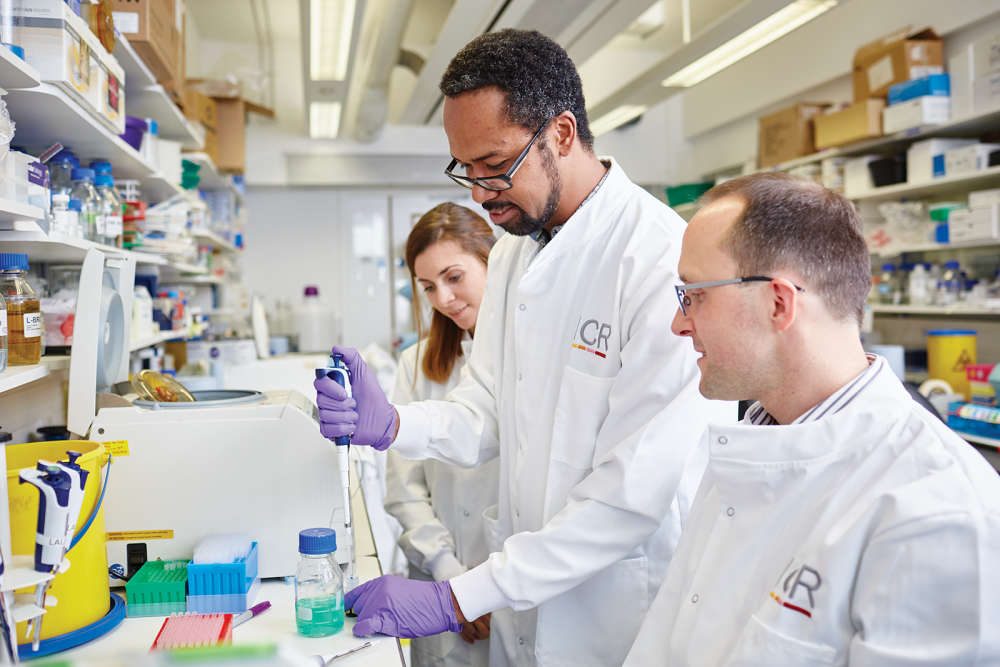
The Institute of Cancer Research, London, is striving to improve the lives of people with all types of cancer – including those with the most challenging to treat. Scientist Dr Anguraj Sadanandam explains why support for this research is vital
Half of people with cancer in the UK will now live for more than ten years after diagnosis. But while overall survival rates are improving, this is not the case for all types of cancer. Cancers of unmet need – those lacking an effective treatment – still have much poorer outcomes, accounting for half of UK cancer deaths.
At the Institute of Cancer Research (ICR), our world-class scientists are working to better understand hard- to-treat cancers such as pancreatic, brain and lung cancer, as well as much rarer cancers such as sarcomas and mesothelioma – so that we can develop new treatment approaches that can help people live longer with a better quality of life.
The ICR is one of the world’s most influential cancer research organisations, with an outstanding record of achievement dating back more than 100 years. Scientists and clinicians here are working every day to make a real impact on cancer patients’ lives.
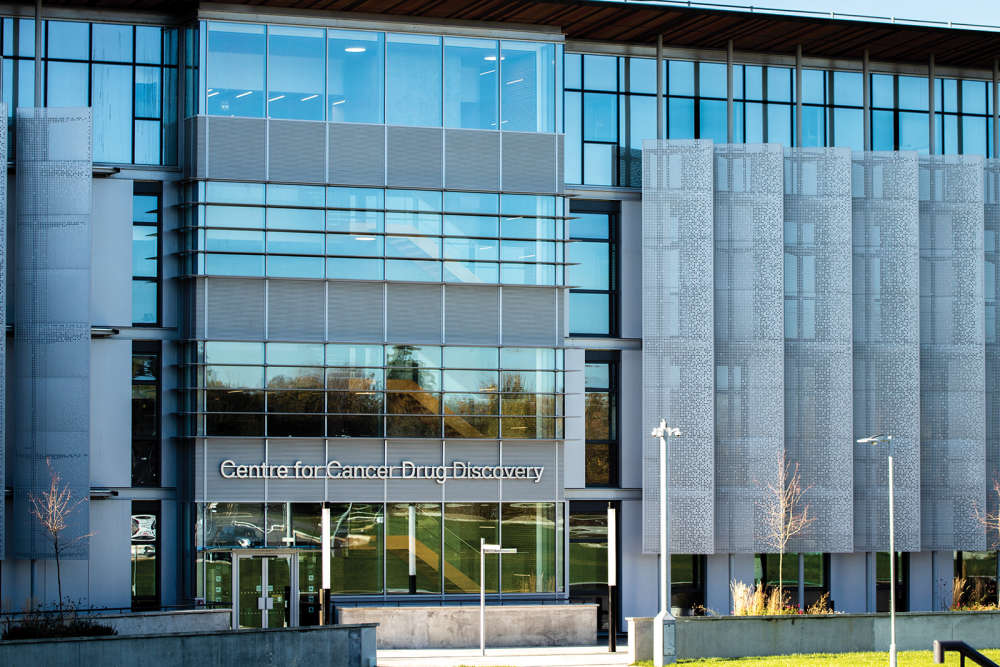
We provided the first convincing evidence that DNA damage is the basic cause of cancer, laying the foundation for the now universally accepted idea that cancer is a genetic disease. Today, the ICR is a world leader at identifying cancer-related genes and discovering new targeted drugs for personalised cancer treatment – our scientists have discovered more potential cancer drugs than any other academic institution in the world.
One of those drugs, abiraterone, has been used to treat hundreds of thousands of men around the world with advanced prostate cancer –extending their lives and giving them precious time with their loved ones.
As a charity and a research university devoted to cancer research, we are in a strong position to tackle hard-to-treat cancers, which are often overlooked by the pharma industry and institutional funders. It is only by addressing all types of cancer, even the most challenging to treat, that we can hope to defeat this disease. But we rely on support to do this – from partner organisations, funders and the general public.
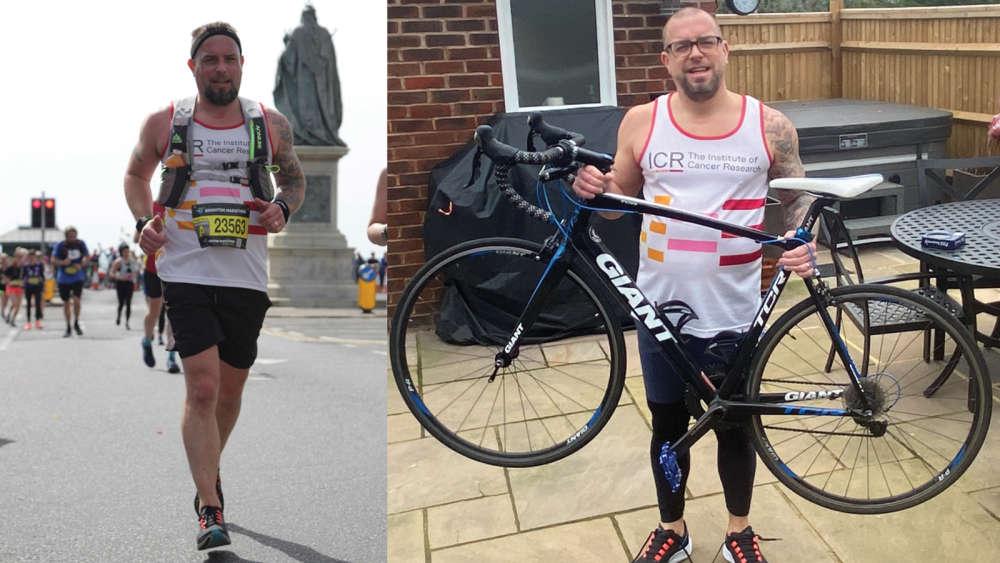
Sussex local, Dave World, has supported the ICR in memory of his mum, Moira. He completed the London Classics in 2022: the London Marathon, RideLondon-Essex 100, and the two-mile Swim Serpentine. “I lost my mum to pancreatic cancer 12 years ago. She was diagnosed in June and then died on Boxing Day, six months later. I was adopted, so she’d always been my rock – my everything – and to lose her was devastating for me. She was a very keen runner. I hadn’t really run before, just played football and sports, but I wanted to do something to remember her by, so I decided to run a marathon in 2016.
“I’m really committed to The Institute of Cancer Research – we’re at a stage now where defeating cancer is within our reach, and I want to help make that happen. And it’s a real team environment. There’s a brilliant Facebook group for people who are raising money for the ICR by taking part in events and everyone is so supportive. I’ve done events for other charities before, but the ICR supports you all the way through and that’s been really important to me.”
Support from people like Dave is crucial – to help us revolutionise treatment, harness cutting-edge technologies and offer hope to more people with cancers which are often complex and poorly understood.
Our work is ambitious – and we need your help to continue making more discoveries, finding more cures, and saving more lives. Your regular monthly gift can help support our research over several years, so it has the maximum possible benefit for people with cancer. Please support our work.
Let’s finish cancer, together - visit: www.ICR.ac.uk/GiveHope
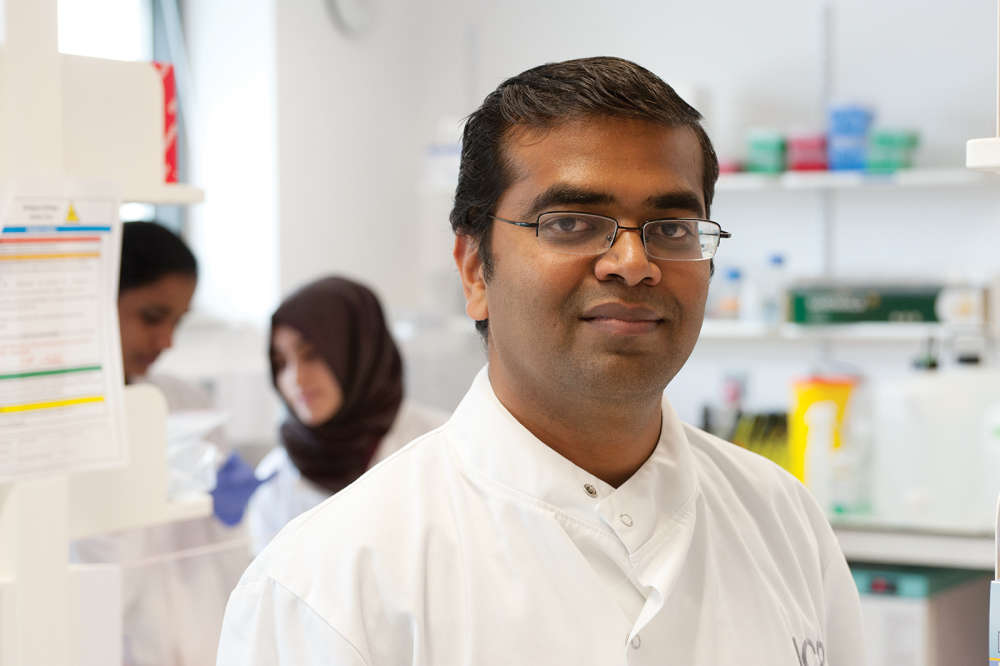
Dr Anguraj Sadanandam

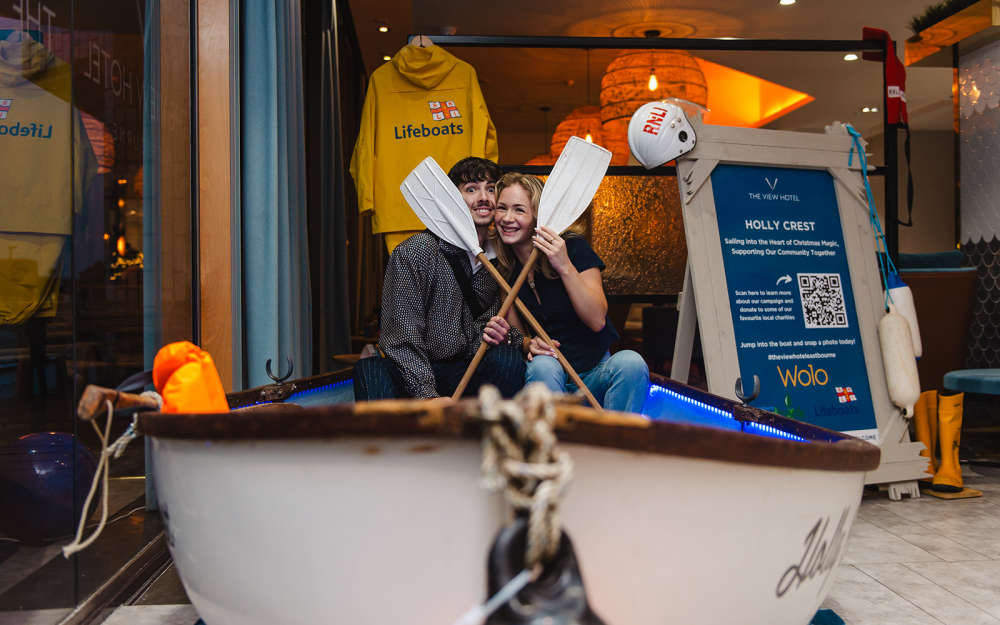 Charity: All Aboard the Ho Ho Ho Holly Crest!
Charity: All Aboard the Ho Ho Ho Holly Crest!
 Hailsham House: More Than Just Care, It’s Home
Hailsham House: More Than Just Care, It’s Home
 Age UK East Sussex Needs You!
Age UK East Sussex Needs You!
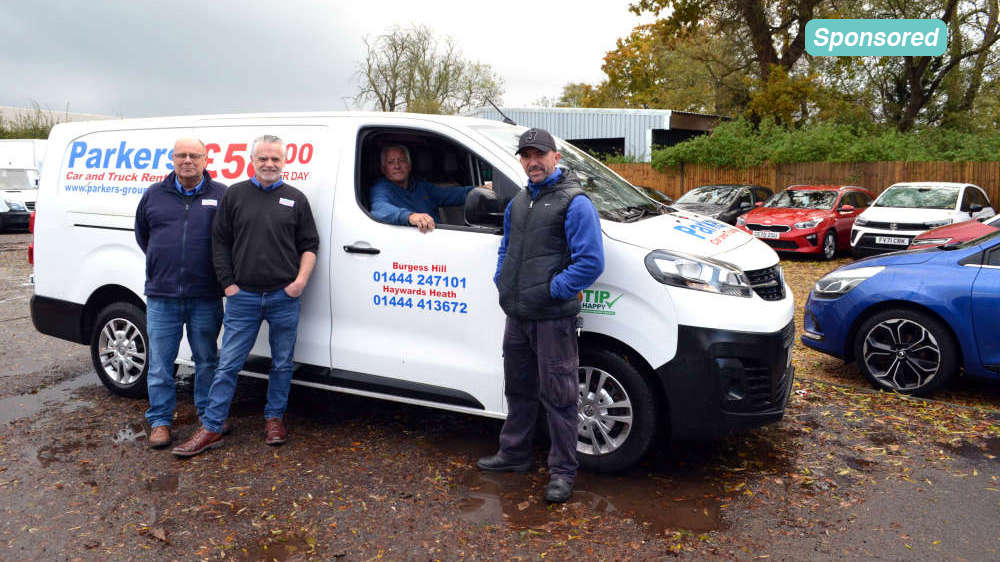 Parkers Car & Truck Rental Celebrate 75 Years
Parkers Car & Truck Rental Celebrate 75 Years
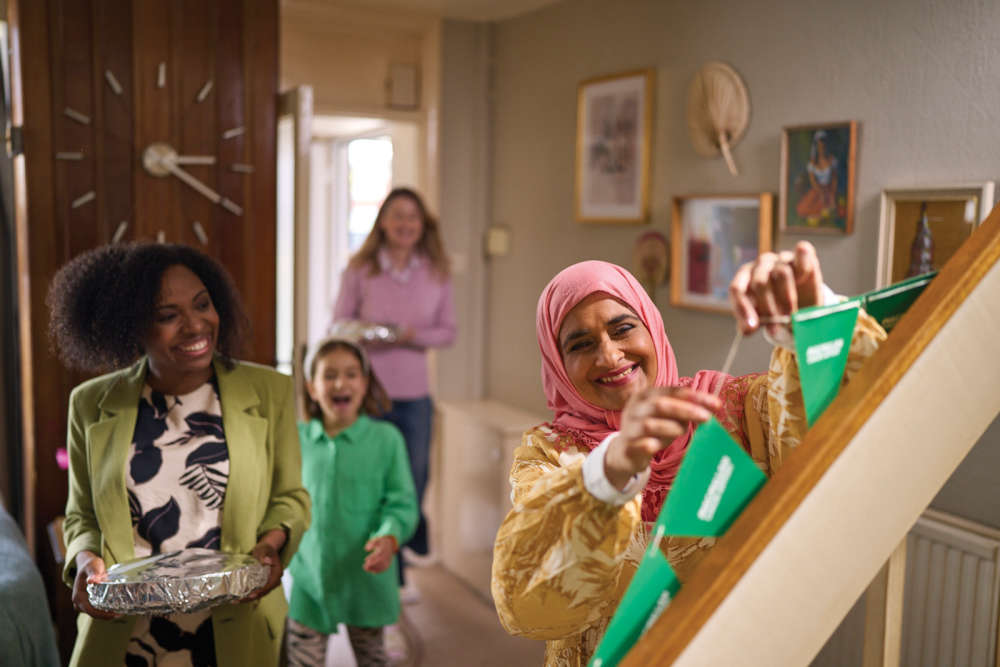 Have a Macmillan Coffee Morning!
Have a Macmillan Coffee Morning!
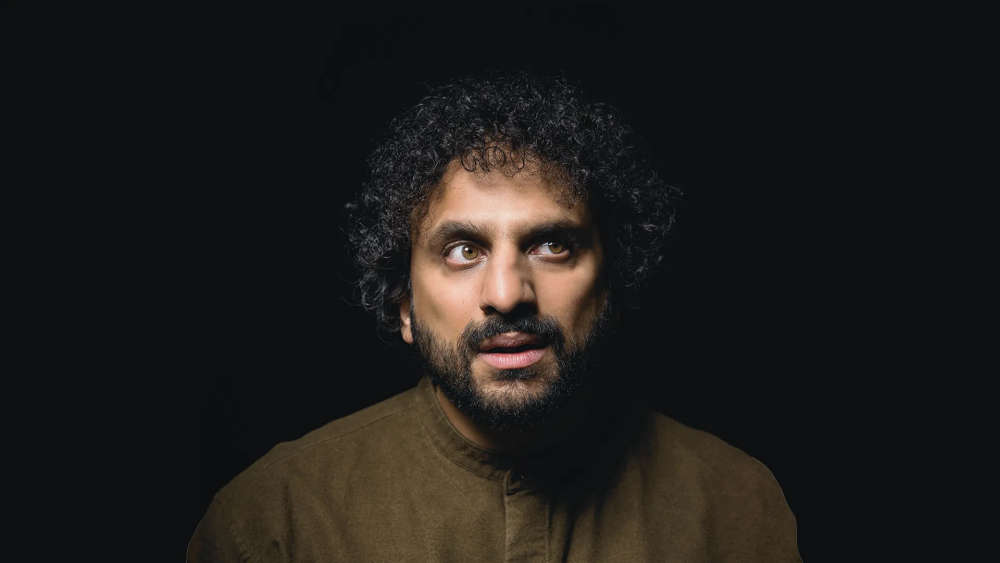 "I quite like to end up with a setlist that involves a catalogue of human misery..." Nish Kumar on his return to stand-up comedy
"I quite like to end up with a setlist that involves a catalogue of human misery..." Nish Kumar on his return to stand-up comedy
 Pure Inspiration
Pure Inspiration
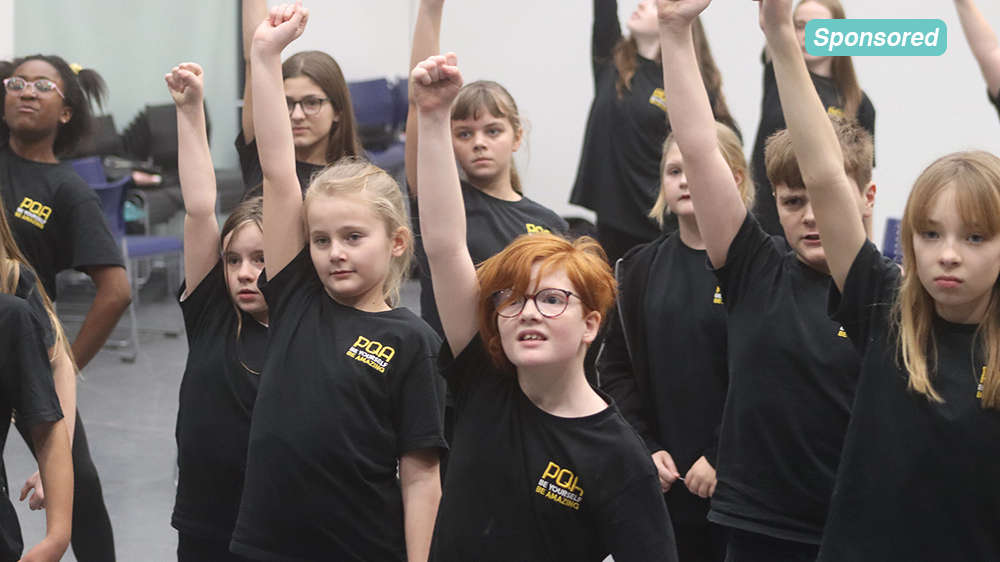 Creating a Dream at The Pauline Quirke Academy
Creating a Dream at The Pauline Quirke Academy
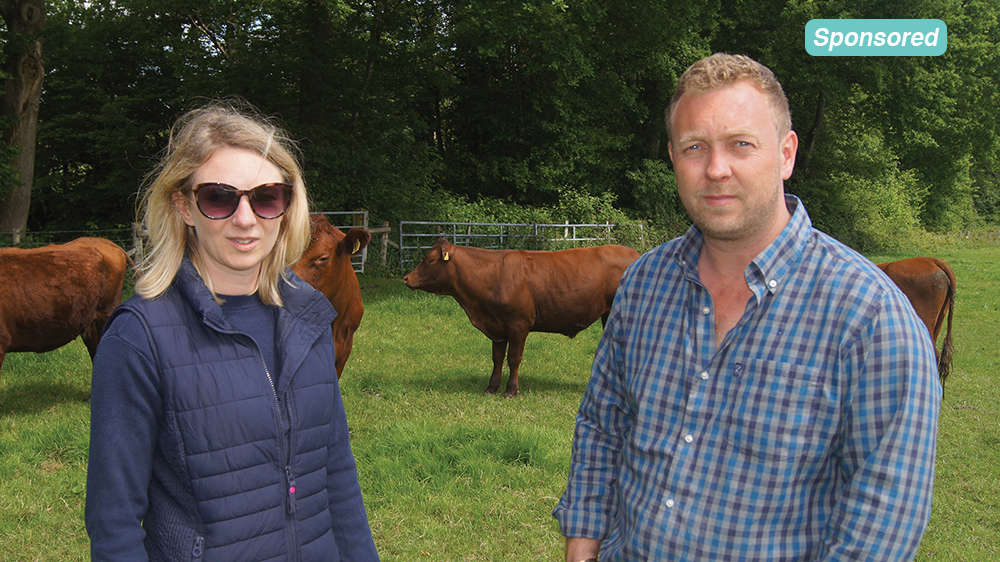 A Little Slice of Heaven
A Little Slice of Heaven
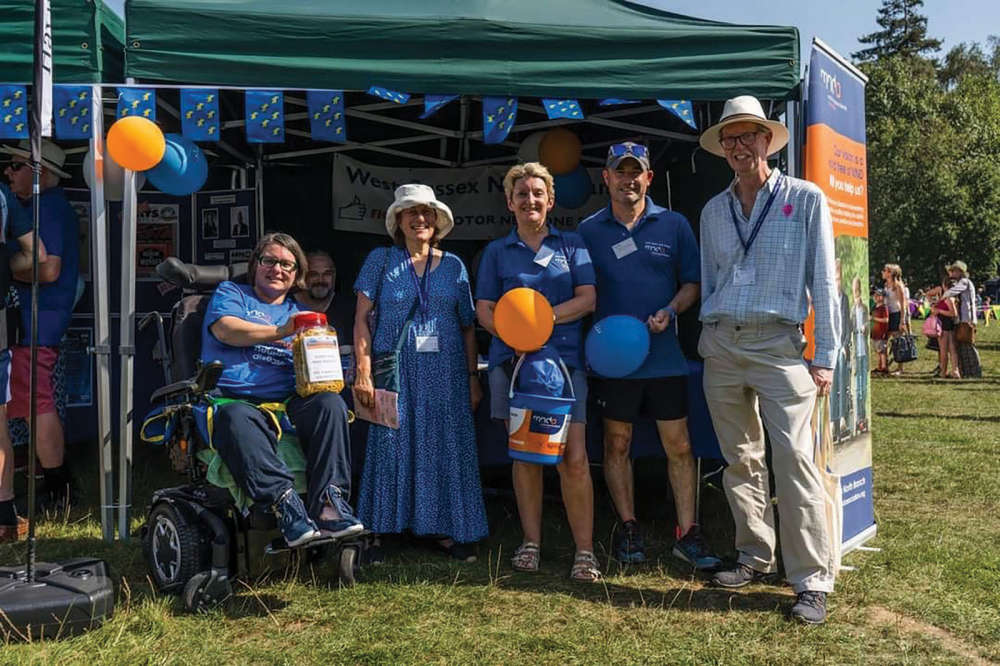 Volunteer for Motor Neurone Disease Association
Volunteer for Motor Neurone Disease Association
 Riding to Success
Riding to Success
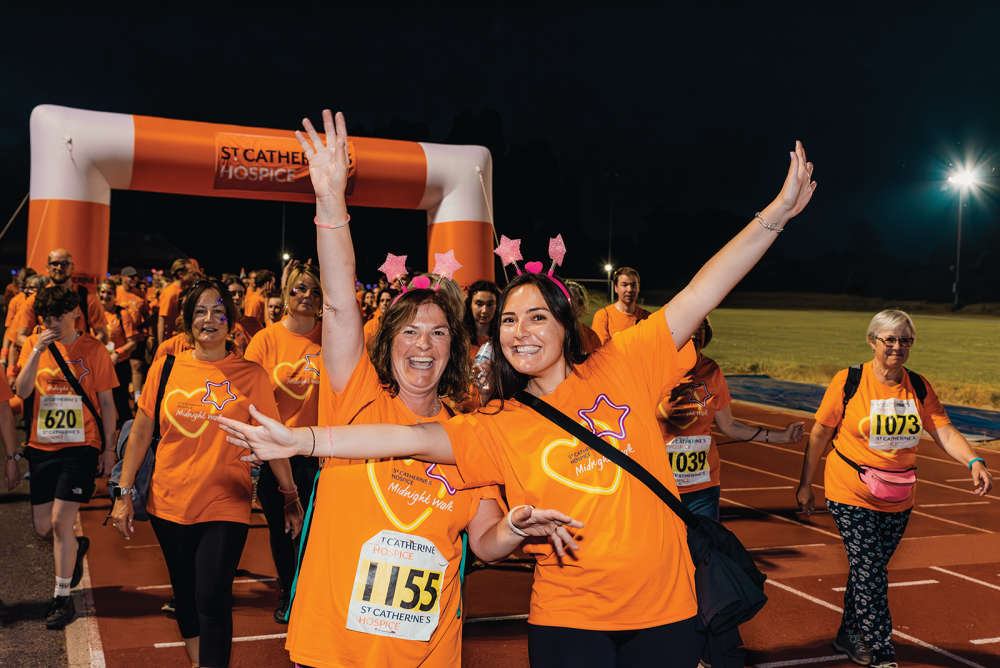 Step out for St Catherine’s Hospice
Step out for St Catherine’s Hospice
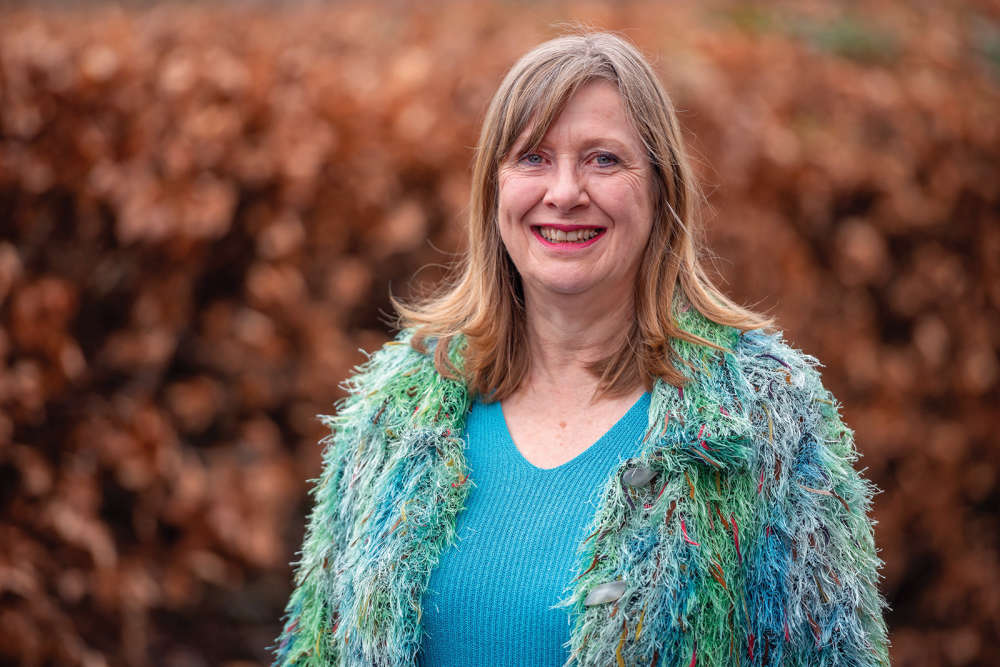 Homes for Ukraine: Opening Your Home and Your Heart
Homes for Ukraine: Opening Your Home and Your Heart
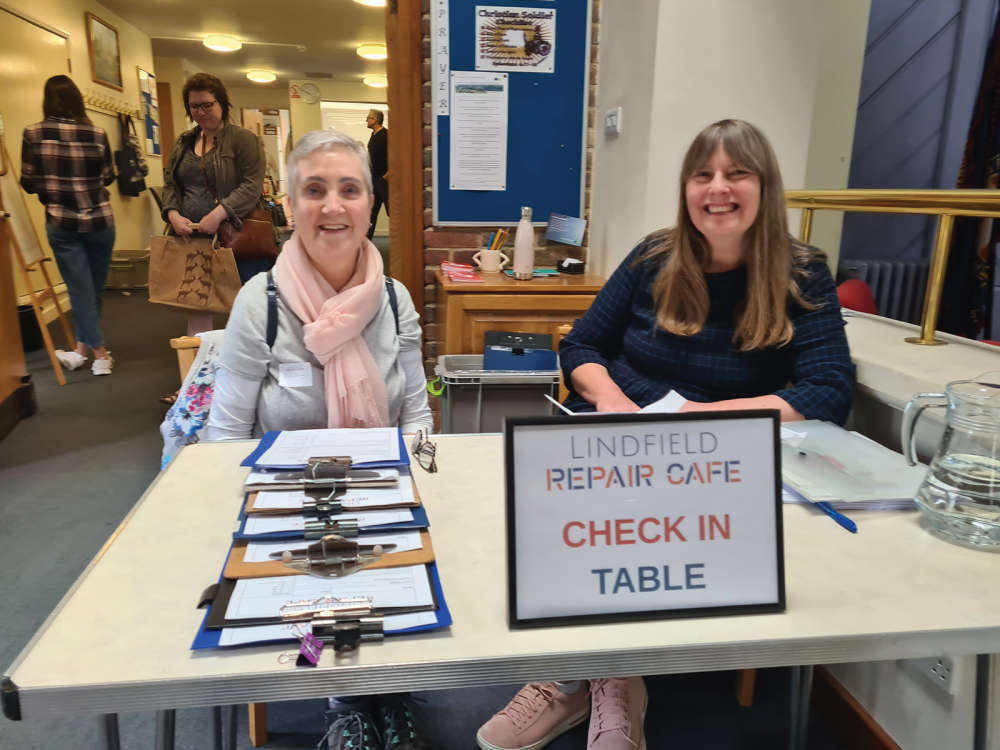 The Joy of the Repair Café
The Joy of the Repair Café
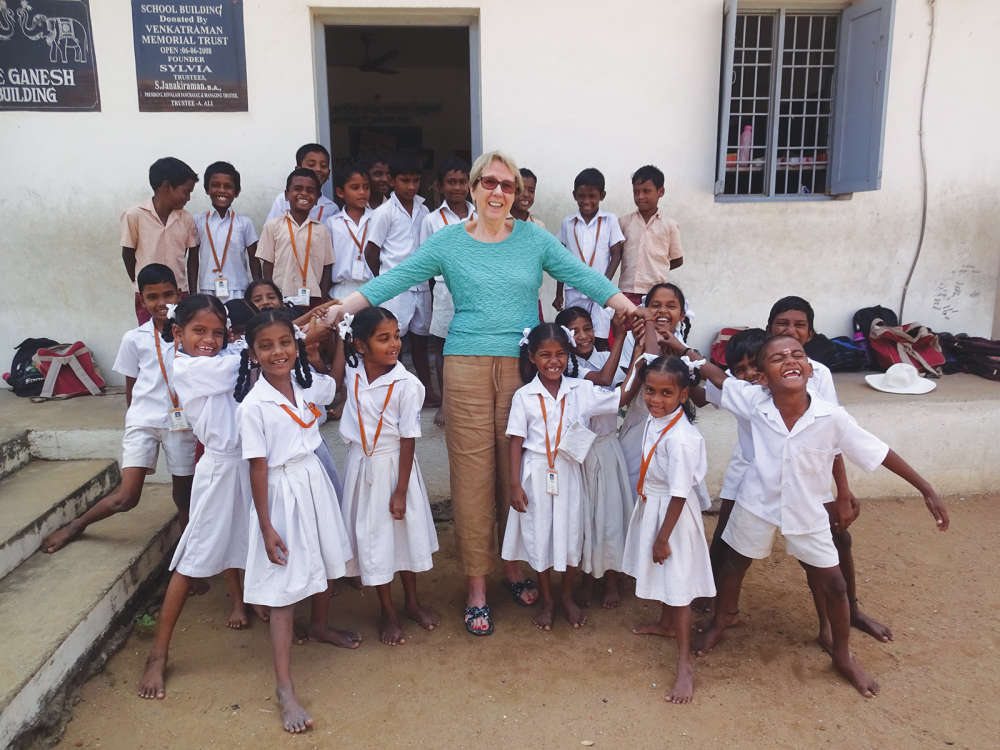 An Unlikely Retirement
An Unlikely Retirement
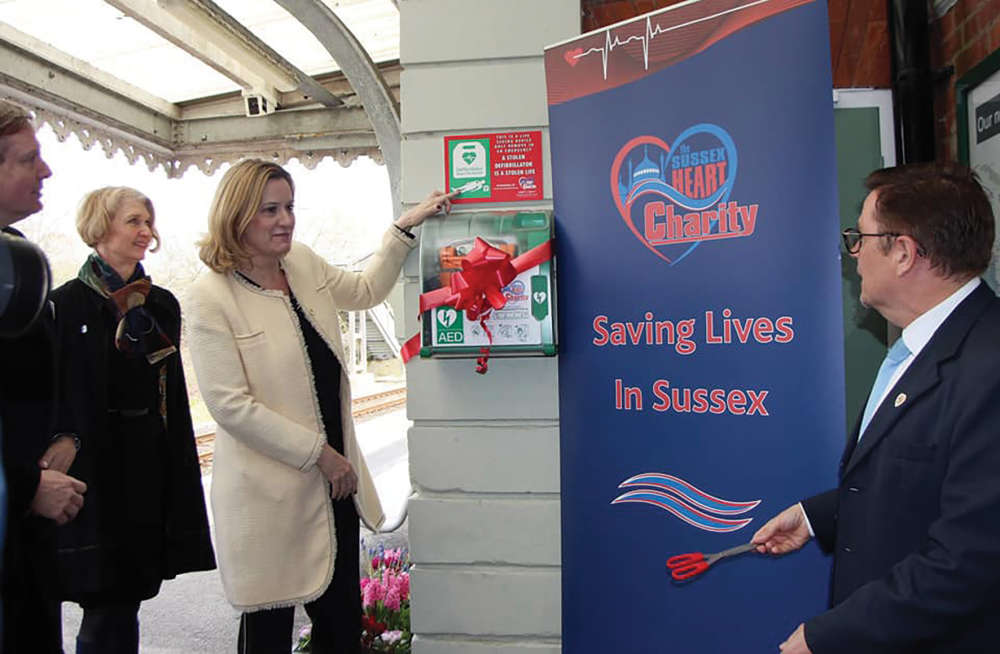 Matters of the Heart
Matters of the Heart
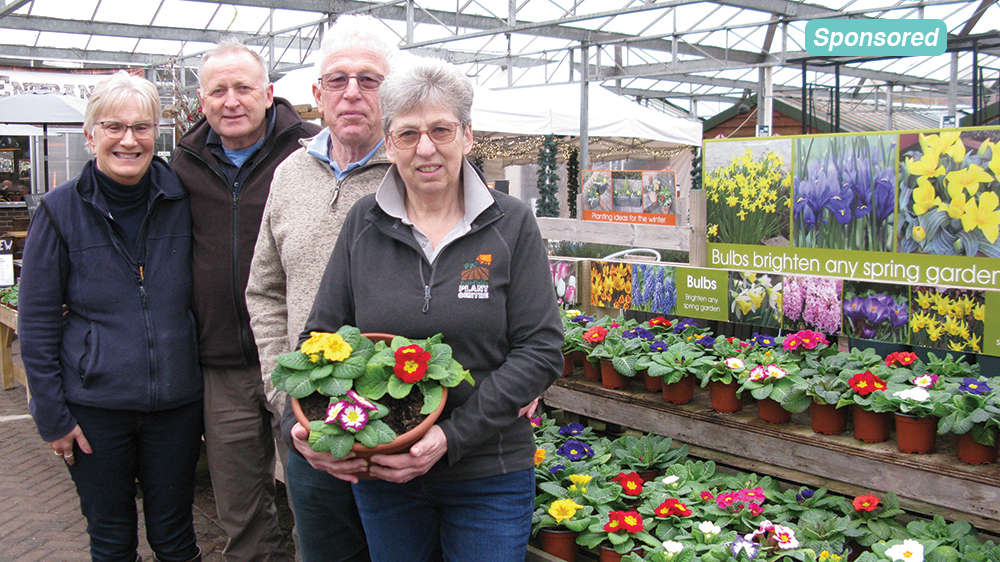 Rushfields: Celebrating 40 Years
Rushfields: Celebrating 40 Years
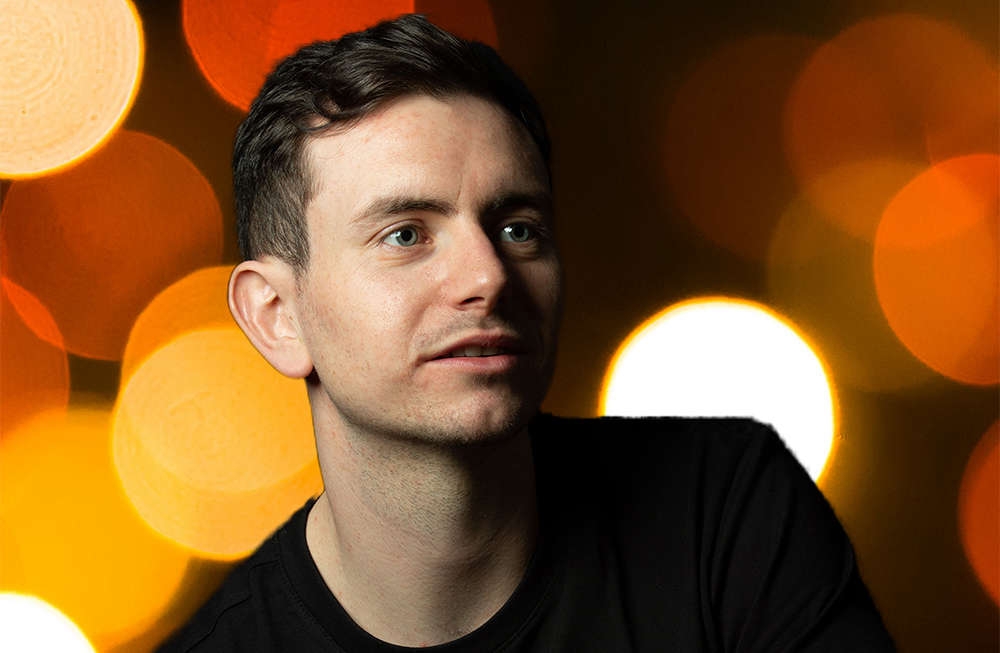 Interview: Comedian Connor Burns brings his Vertigo tour to Sussex
Interview: Comedian Connor Burns brings his Vertigo tour to Sussex
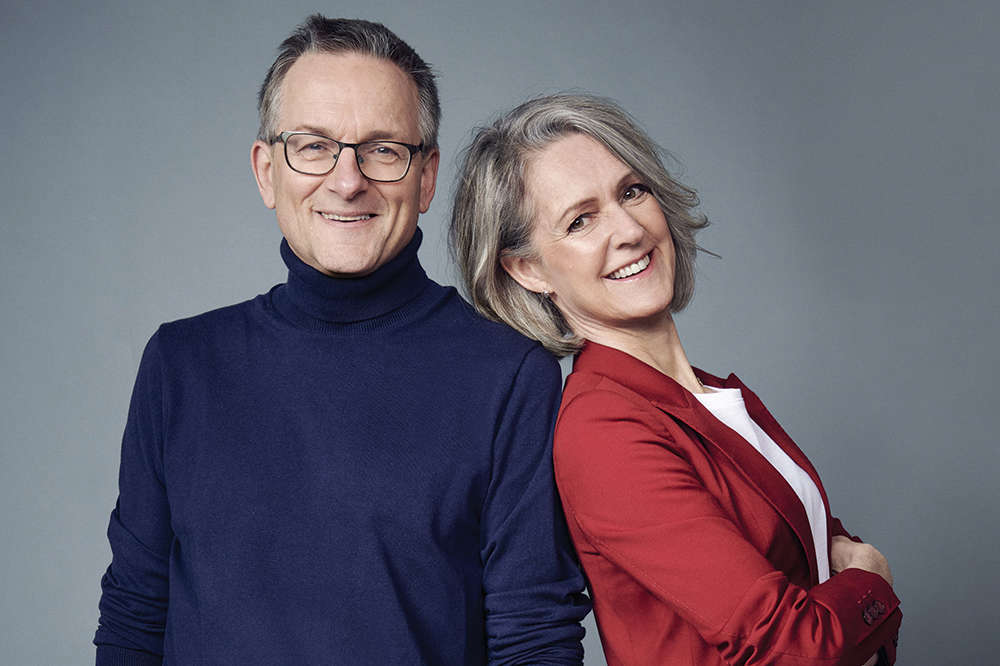 A Double Dose: Interview with Michael Mosley and Clare Bailey
A Double Dose: Interview with Michael Mosley and Clare Bailey
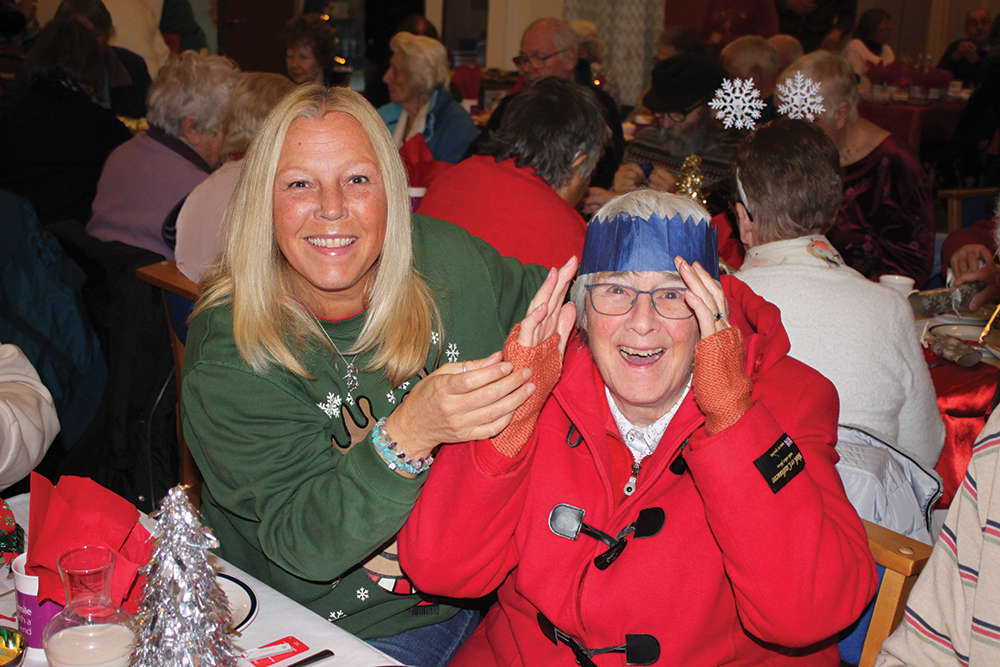 You've Got a Friend
You've Got a Friend